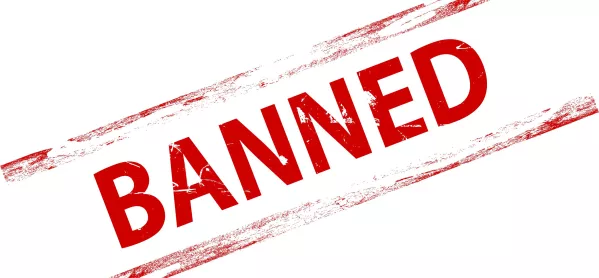A teacher who tried to pass off his own work as pupils’ coursework has been banned by the Teaching Regulation Agency (TRA), but can reapply after five years.
Edward Cox, 33, who was head of computing science at Redhill School in the West Midlands until February 2019, admitted creating samples for his Year 11 creative imedia coursework.
The Cambridge National qualification in creative imedia aims to equip “students with the wide range of knowledge and skills needed to work in the creative digital media sector”, according to the OCR exam board’s website, with pupils mastering production skills to develop multimedia projects.
For two modules of the course - creating digital graphics and creating interactive products - Mr Cox realised that coursework from some pupils was not of a good standard, a TRA report states.
When OCR requested coursework samples for moderation, Mr Cox created a number of samples of his own to submit to the exam board.
Mr Cox said he submitted 30 pieces of work in total - 15 for each module - which were “a mix of student work and [his] own”.
He also gave grades to the exam board that “may not have” reflected pupils’ abilities and were “more in line with [the pupils’] targets than their work” in one or more cases.
After his school received a letter from the board highlighting suspected malpractice, Mr Cox admitted what he had done.
His headteacher prepared a report of the school’s investigation and shared this with the Joint Council of Qualifications in February 2019.
The school also shared the report with OCR, which found that Mr Cox had “committed the malpractice offence of deception by falsifying candidate marks and creating work and substituting it for the real work of candidates in his classes called for in the moderation sample”.
A panel for the TRA found that Mr Cox had been “guilty of unacceptable professional conduct” and that his conduct “lacked integrity”.
The panel considered that Mr Cox had a previously good history as a teacher, and that he had written a statement expressing remorse and demonstrating insight into the impact his actions had on pupils.
However, it found that the “seriousness of the misconduct” meant that banning Mr Cox from the profession was appropriate.
Alan Meyrick, acting on behalf of the secretary of state, imposed a ban, stating: “I am particularly mindful of the finding of fraud and serious dishonesty in this case and the impact that such a finding has on the reputation of the profession.”
However, following recommendations from the TRA panel, he said that Mr Cox would be able to apply to have the ban lifted after a five-year review period, as this would “provide an opportunity for Mr Cox to demonstrate that he was able to participate in assessment processes with absolute integrity”.




